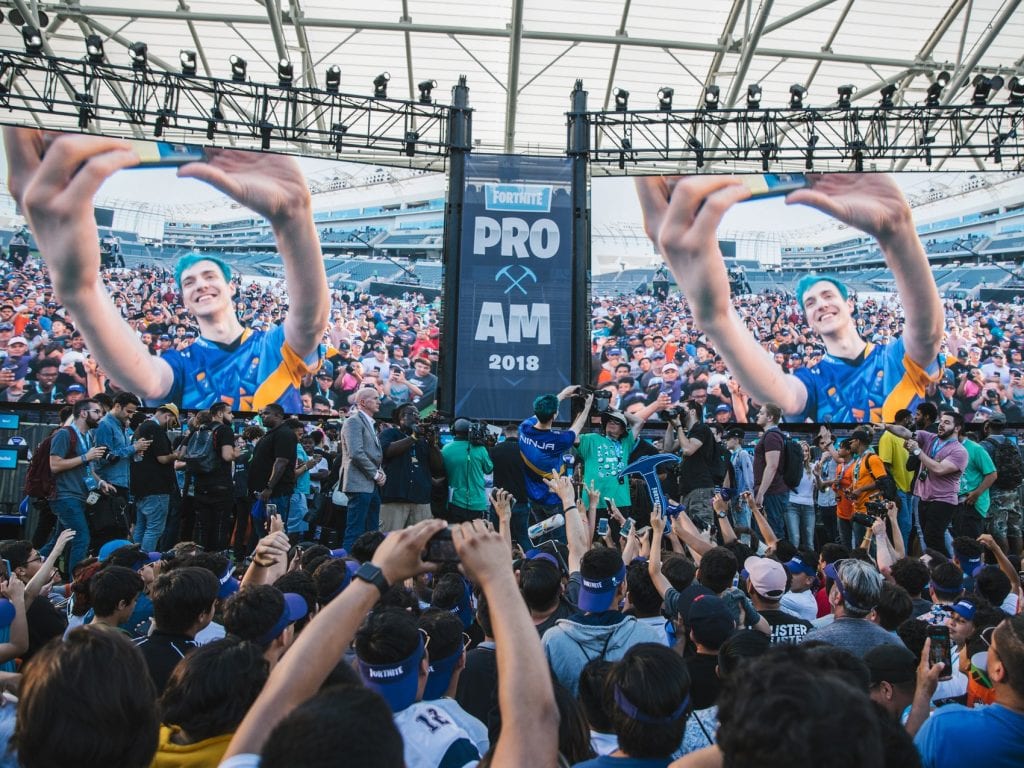Video gaming and esports are having a “moment.” Sure, I know that marketing in the video game industry is nothing new, and pulled in 36 billion in revenue last year, according to ESA.
It simply seems to me, as a result of the explosion of esports, the phenomenon that is Fortnite, this being the highest-attended E3 ever, and the fact that gaming culture IS pop culture, there is no better time for marketers to deploy video gaming and esports programs to reach their target audiences.
I recently attended E3 in LA on behalf of several clients – and saw proof of the above firsthand. E3 is the premiere event for the video game industry and its fans, one of the biggest in the world. E3 is like the Super Bowl Media Center, Comic-Con and an EDM rave all rolled into one massive gaming extravaganza.
Here’s some takeaways from my week of gaming in LA:

Fortnite, Fortnite, FORTNITE!
In short, Fortnite dominated E3 just like it’s been dominating mainstream entertainment culture. I could not look left or right, or talk to anyone without Fortnite busting into view or out in conversations with vigor. For those not aware, Fortnite is a zombie survival co-op game that draws on the best aspects of Minecraft (building worlds and structures) and a simplistic shooter, with heavy doses of playful fun. Smack dab in the middle of E3, Fortnite and its publisher Epic Games along with mega-streamer Ninja hosted a Pro-Am tournament at LA’s Banc of California Stadium (LA MLS stadium) where 50 pros/streamers were paired up with 50 celebrities for $3M in prize money. With a sold-out crowd and 1.5million viewers on Twitch at its peak, and a concurrent viewership total of 700K, the event set a new record for a live battle royal game. Fortnite is doing great things for the industry, especially within esports communities. Fortnite is building a larger cultural connection to people in music, movies and TV. It’s is a force to be reckoned with.
Esports is Here to Stay, and Growing!
Esports has proliferated sports marketing and, among the major players in the space—League of Legends, Overwatch, NBA 2KL, Call of Duty, Fortnite—there was a lot of discussion among industry insiders on how best to market and cultivate the growth of esports, as well as streamers and casters. Though E3 was mostly focused on video game releases and publisher activity, esports was a constant theme throughout the conference.
Video Game Culture is Mainstream Pop Culture.
At the Fortnite event alone, there were 50 celebrities who regularly play video games from every corner of pop culture, including rapper Drake, NBA all-star Paul George, NFL pro-bowler Odell Beckham Jr., EDM sensation Marshmello, and more. It’s clear, given the cross-section of celebrity, athlete and musician in attendance, that gaming culture is now pop culture. Games “play” to a wide array of demographics, giving marketers a great opportunity to reach deep, but also niche, audiences.
Where are the Audiences Watching?
These fans are digital natives, traditional TV is not their first, second or even third option for media consumption. They’re steaming media online via mobile and on-console. Amazon-owned Twitch is everywhere, and rapidly evolving beyond gaming into all facets of sports and entertainment. As cord cutting grows, streaming will be omnipresent, led by YouTube, Twitch and other emerging platforms. Marketers need to be smart about using these platforms to reach consumers. Twitch alone has staggering numbers, including over one million unique visitors and 16 billion minutes of consumed media per month, and an audience mostly comprised of often hard to reach millennials, 60–70 percent of which are men between the ages of 18 to 34.
In summary:
- For brands trying to reach Gen Z, millennial, male-skewing audiences, there is no better time to activate in gaming and esports.
- Where marketers can win: apply the creativity and experience they have in brand marketing, sports and entertainment media relations and big idea generation to gaming and esports.
- Deploy Influencers, given the loyal, engaged and massive digital following that gamers, streamers, esports stars, casters and more have in the space.


